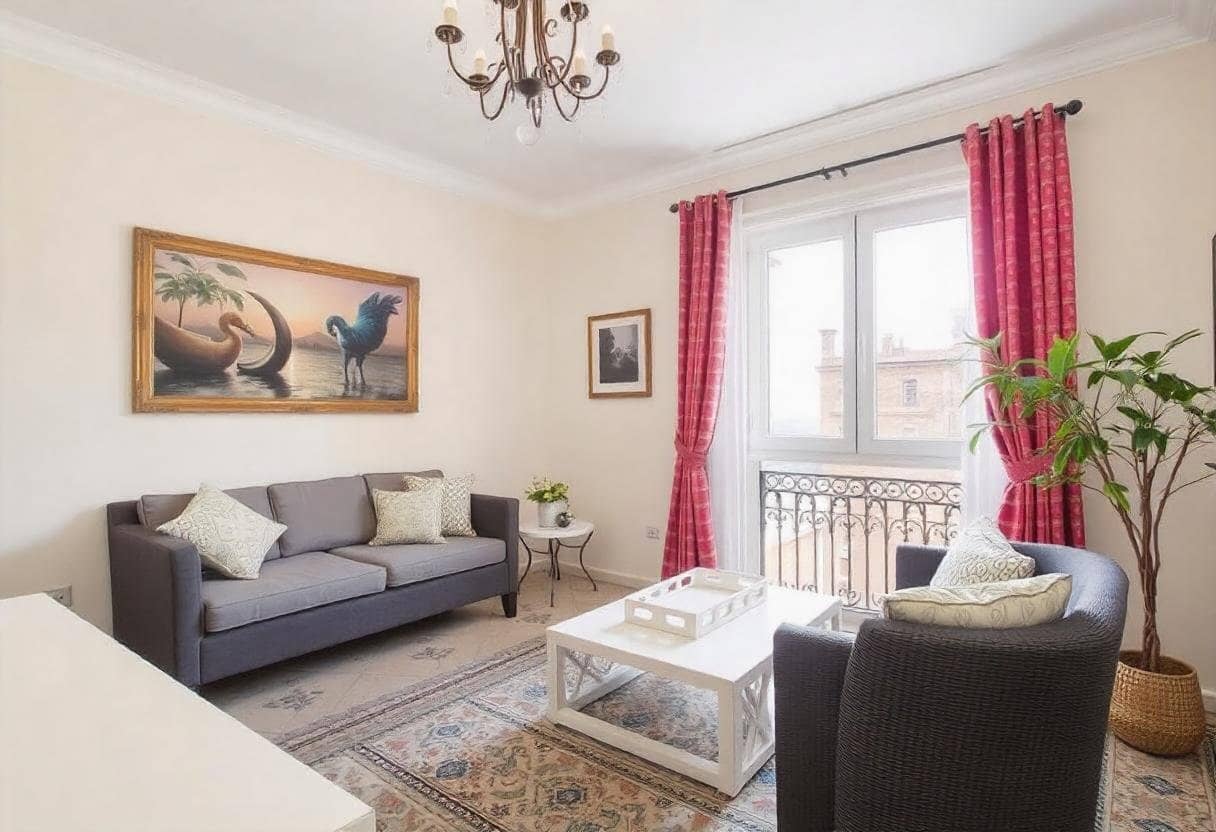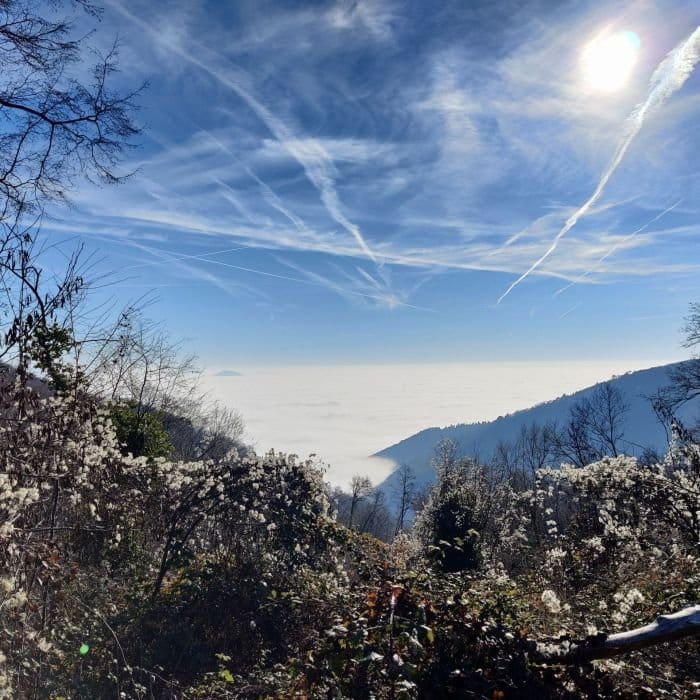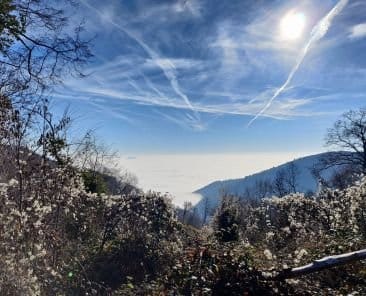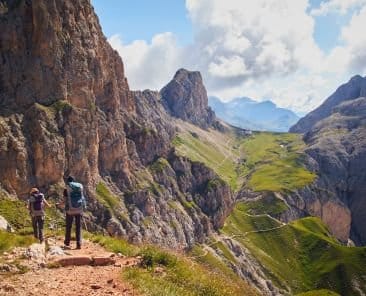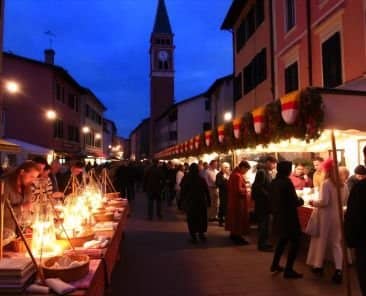Veneto, located in northeastern Italy, is an enchanting region that boasts a rich cultural heritage, diverse landscapes, and a high quality of life, making it an attractive destination for expats and retirees. Known for its gorgeous countryside and coastline regions, as well as its charming cities like Padua, Verona, and Venice, Veneto offers the ideal fusion of old world charm and contemporary conveniences.
The goal of this article is to offer a thorough how-to manual for managing a holiday rental or bed & breakfast (B&B) in Veneto. Whether you’re a retiree searching for a fulfilling pastime to do after retirement or an expat wishing to launch a new business, this guide will take you through the crucial processes and factors to take into account when starting and running a profitable hospitality business in this stunning region of Italy.
II. Types of Hospitality Structures in Veneto
To accommodate the wide range of traveller interests, Veneto provides a variety of hospitality options. Knowing these categories can assist you in selecting the ideal kind of lodging to provide, given your available resources, target market, and location.
Classification of hospitality structures
- Hotel Structures
Hotel structures in Veneto are represented by traditional hotels and tourist residences. Guest services provided by hotels include lodging and meals with options ranging from luxury establishments to budget options.
Holiday rentals or tourist residences are more like hotels but are meant to be occupied for extended periods of time. They are equipped with kitchens and other features that make them feel like homes.
- Outdoor Structures
Outdoor structures include campsites and tourist villages. Campsites are places set aside for camping that provide accommodation for tents, caravans, and camper vans in addition to the standard facilities like restrooms and showers.
Tourist villages are resorts that provide a more all-inclusive holiday experience. You’ll find a variety of lodging alternatives, including bungalows and cabins, as well as substantial recreational amenities, such sports courts, pools, and planned events.
- Complementary Structures
Furnished apartments, holiday homes, and bed & breakfasts (B&Bs) are under complementary construction. Bed and breakfasts (B&Bs) are typically small, family-run businesses that offer accommodation and breakfast in a cosier, more intimate setting.
Unlike hotels, holiday homes are whole houses or flats rented out to visitors. They provide greater privacy and flexibility. Completely furnished apartments are perfect for travellers looking for a more independent and homelike stay because they are completely prepared for short-term rentals.
- Natural Environment Structures
Natural environment structures are special housing options that provide a memorable lodging experience. Think of floating lodgings like houseboats and floating cabins for a peaceful and distinctive setting on water bodies. Other structures are tree houses, which are constructed amid the trees and offer an exciting and environmentally responsible stay.
- Other Types of Hospitality
Other forms of hospitality include non-classified buildings, holiday rentals, and agriturismo.
Agriturismo is the term for working farms that provide lodging and let visitors experience rural living and regional farming methods, frequently with farm-to-table dining options.
Unclassified buildings are non-traditional lodging choices distinguished by unique themes or creative architecture.
Holiday rentals are private homes that are rented out to visitors; these can be anything from lofts in the city to villas in the countryside, and they are frequently run through websites like Airbnb.
III. Agriturismo: The Best Tax Option
According to regional law, Agriturismo is the term for hospitality services offered by business owners who operate farms. A qualified farmer who primarily engages in agricultural operations must meet the eligibility requirements. This classification enables farmers to continue their primary concentration on farming while diversifying their revenue streams by providing lodging and other tourism-related services.
- Definition and Requirements
The operator must show that there is a substantial link between the hospitality services and the farming operations in order to be classified as an agriturismo. This frequently entails incorporating farm features into the visitor experience, such as giving farm tours, serving food prepared using vegetables grown on the property, and involving visitors in farming operations.
The agriturismo legal framework aims to uplift rural economies and encourage environmentally conscious travel. As a result, upholding particular agricultural activity criteria and completing basic professional training for operators are prerequisites for opening an agriturismo. This guarantees that operators have all they need to run their businesses’ hospitality and agricultural divisions efficiently.
Agriturismo is a desirable alternative since it provides benefits related to regulations. When compared to other hospitality structures, the operational requirements are typically less complicated. This ease of use also extends to financial advantages since agriturismo businesses frequently receive preferential tax status in comparison to larger commercial hotel businesses.
- Regulatory Benefits
One of the significant advantages of running an agriturismo is the regulatory benefits, which include simpler requirements compared to other types of hospitality structures. For example, habitability rules apply more to agriturismo enterprises than hotels, which are subject to more complicated and strict regulations.
These standards for habitability guarantee that the lodging is secure and cosy for visitors without imposing overly burdensome compliance measures. The simpler regulations often translates to lower initial setup costs and fewer ongoing compliance expenses, freeing up funds for both bettering agricultural operations and tourist experiences.
- Operational Requirements
Operating an agriturismo comes with specific requirements to ensure that the primary focus remains on agricultural activities, with hospitality as a secondary endeavour. This also preserves the integrity and genuineness of the agriturismo experience, and it implies that the revenue from agricultural pursuits on the farm ought to, on average, surpass the revenue from tourists.
Operators have to reach specific benchmarks for agricultural activity. These benchmarks, which differ by area, are intended to guarantee that the farm continues to be a viable agricultural operation. Depending on the type of farm and local laws, the specific criteria may include minimum land cultivation, livestock numbers, or productivity limitations.
Furthermore, agriturismo operators must complete an initial course of professional training. This programme covers the agricultural and hospitality facets of operating an agriturismo, guaranteeing that operators possess the abilities and know-how to handle their dual obligations successfully.
Agriturismo-specific marketing tactics, food safety, farm management, and customer service are a few examples of the subjects that could be covered in the course.
IV. Bed & Breakfast (B&B): Flexible Residential Option
A Bed & Breakfast (B&B) is an accessible choice for those wishing to launch a small-scale hospitality enterprise in Veneto. This option is great for homeowners who want to use their current property for extra income because, unlike larger hotels, it may be run in any type of residential building.
- Definition and Requirements
Compared to bigger hospitality facilities, bed and breakfasts (B&Bs) offer a more private and personalised experience for customers staying in up to three rooms. The key requirement is that the owner or manager must reside on the premises. This ensures that guests receive the right personalised attention and service.
B&B owners can provide a warm and inviting atmosphere that captures the beauty and individuality of Veneto’s residential neighbourhoods by adhering to these standards. In addition to providing a cosy environment for the visitors, this arrangement also helps the owners run their business side by side without having to hire many new employees or build up a lot of additional infrastructure.
- Regulatory and Operational Aspects
Operating a B&B in Veneto comes with several regulatory and operational advantages that make it a straightforward option for many aspiring hosts. The fact that the land does not have to be designated as a commercial building is one of the main advantages. This greatly lowers the complexity and expense of opening and running a bed and breakfast because domestic premises often encounter less red tape than commercial ones.
Nonetheless, B&B owners have to abide by Veneto’s unique B&B laws. These rules may cover things like specifications for visitor facilities, safety requirements, and room sizes. To ensure complete compliance and prevent potential penalties or operational problems, prospective bed and breakfast entrepreneurs should become well-versed in various local legislation.
Additionally, while the owner or manager must reside on the premises, there is flexibility in how this requirement is met. The owner or manager may occasionally utilise a different flat in the same building. This gives each party privacy and convenience by clearly demarcating the sections used for guest accommodations from the private living space.
B&B owners in Veneto can establish a legally acceptable, hospitable, and effective business that takes advantage of the region’s tourism appeal while keeping a controllable and adaptable work environment by following to certain legislative and operational factors.
V. Holiday Let: Simplest Option
Holiday lets represent one of the simplest options for those looking to enter the hospitality market in Veneto. A holiday let involves renting out a property, typically for short-term stays, without the need for the extensive requirements associated with other types of hospitality businesses. Here are some requirements and benefits in terms of regulation and operation.
- Definition and Requirements
If running a holiday let is not the owner’s primary job, one of its main benefits is that it does not need to be registered as a business. This implies that, as long as it stays a secondary source of income, people can rent out their property part-time without having to deal with the hassles of business licencing.
Due to their flexibility, holiday lets are a desirable choice for property owners who wish to supplement their income without taking on the responsibilities of full-time hospitality management. Owners can market their properties, manage bookings, and handle payments with relative ease by using certain rental management services online.
- Regulatory and Operational Aspects
Operating a holiday let in Veneto involves a few essential regulatory and operational steps to ensure compliance with local laws and provide a seamless experience for both the owner and guests.
First off, there is a streamlined registration procedure that needs to be followed even if holiday rentals do not need a full business registration if they are not the owner’s primary vocation. This usually requires alerting the appropriate local authorities that you intend to rent out the house for a brief period of time. It is a simple process.
Second, proprietors have to abide by regional tourism laws. These rules may cover things like minimum occupancy limitations, safety standards, and the provision of necessities. It is essential that you become familiar with these rules in order to stay out of trouble and make sure the property satisfies the requirements for having visitors.
Another important aspect is the communication of guest data. All visitors must have their information registered with the municipal authorities in Veneto and throughout Italy.
Usually, the Systema di Alloggiati Web, also known as the Regional Guest Registration System, is used for this. It is imperative for property owners to make sure they obtain the requisite identity information from their visitors and promptly submit it via this platform.
VI. Corporate and Tax Implications
When operating a hospitality business in Veneto, understanding the corporate and tax implications is crucial for ensuring compliance and optimizing financial outcomes. Each type of hospitality structure—whether it’s an agriturismo, B&B, or holiday let—comes with its own set of regulatory requirements and tax considerations. This section provides a brief overview of these implications to help potential business owners navigate the legal and financial landscape effectively, ensuring that their operations are both profitable and compliant with regional laws.
- Agriturismo
Operating an agriturismo in Veneto comes with significant tax advantages, as it is classified under agricultural business. Owners can take advantage of the advantageous tax rates that are generally applied to agricultural enterprises thanks to this classification. However, the agriturismo needs to be a supplementary enterprise to a major agricultural firm in order to keep these tax incentives. This implies that farming should account for the majority of revenue, with tourism serving as a complementary source. Additionally, agriturismo operators can often deduct expenses related to their agricultural and hospitality operations, further reducing their tax burden.
- B&B
The revenue received from Bed & Breakfast (B&B) operations is reported under individual income taxes. For the proprietors, this means it’s rather easy; all they have to do is include the B&B income in their annual personal tax return. But there might be ramifications for VAT to think about. The B&B may have to charge VAT if the services reach a specific threshold, usually related to revenue or service level (e.g., providing meals, extra facilities, or regular services). This can require obtaining a VAT number and filing frequent VAT returns.
- Holiday Let
Whether or if the holiday let business is a primary source of revenue or a secondary source has a big impact on the tax consequences. Similar to bed and breakfast enterprises, income from property rentals is often recorded under personal taxes if the owner does not use it for commercial purposes. No business registration is required. On the other hand, if the holiday rental is managed professionally, the owner could have to register the company, charge VAT, and abide by corporate tax laws. This entails filing business tax returns and, in the event that the renting activity brings in a sizable income, maybe contributing to social security.
VII. Steps to Establish a Hospitality Business in Veneto
Setting up a hospitality business in Veneto involves specific steps tailored to the type of operation you plan to run. Here’s a brief overview to guide you through the initial phases of establishing an agriturismo, a B&B, or a holiday let:
- Agriturismo
- Submit a Recognition Application: Apply for recognition via the regional agricultural tourism portal to officially classify your business as an agriturismo. This involves providing detailed information about your farm operations, the accommodations you offer, and the agricultural activities available to guests.
- Certified Start of Business Activity Notice: Submit this notice to the local business registry office to formally begin operations. This document, known as the Segnalazione Certificata di Inizio Attività (SCIA), must include all necessary permits and certifications. It ensures that your business meets all regional regulatory requirements.
- Classification and Display of Recognition Plaques: Ensure your agriturismo is classified correctly by local authorities based on the quality and type of services offered. Display the official recognition plaques prominently at your establishment. This plaque indicates to guests that your business complies with all agriturismo standards and is officially recognized by the regional government.
- B&B
- Registration with Local Authorities: Register your B&B with the appropriate local authorities, such as the municipality (commune), to obtain the necessary permits and licences. This step involves submitting detailed information about your property and its intended use as a B&B.
- Compliance with Hygiene, Safety, and Habitability Standards: Ensure your B&B meets all regional regulations regarding hygiene, safety, and habitability to provide a safe and welcoming environment for guests. This includes passing health and safety inspections, ensuring rooms are adequately furnished, and meeting fire safety standards.
- Holiday Let
- Submission of a Tourist Rental Notification: Notify the local authorities of your intent to offer your property as a holiday let. This notification, often submitted online, must include details about the property, its location, and the duration for which it will be available for rent.
- Obtain a Unique Identification Code: Secure a unique identification code for your holiday rental property as mandated by regional regulations. This code is used for official documentation and helps track the rental property within the regional tourism framework.
- Display and Publish the Code: Clearly display and publish this code in all advertising and communications related to your holiday let to comply with regional transparency requirements. This ensures that potential guests can verify the legitimacy of your rental property, thereby enhancing trust and compliance with local laws.
VIII. Conclusion
In conclusion, Veneto provides retirees and expats with a wide range of hospitality possibilities, each with specific advantages and specifications. There is a structure to fit any preference and lifestyle, from the agriturismo, which offers substantial tax advantages and encourages sustainable tourism, to the adaptable and residential-focused B&B and the simple holiday rental alternative.
For those considering embarking on this venture, it is essential to thoroughly understand the specific requirements and regulations for each type of hospitality business. It is strongly advised that you speak with local professionals to make sure that local laws are followed and to obtain customised guidance that fits your objectives and circumstances.
By carefully selecting the right hospitality structure and adhering to local regulations, expats and retirees can successfully establish and run a rewarding and profitable hospitality business in the beautiful region of Veneto.
Was this helpful?
Good job! Please give your positive feedback
How could we improve this post? Please Help us.


